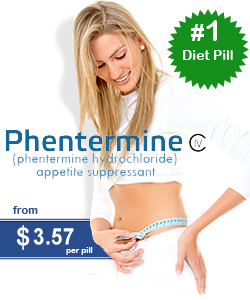Acne And Diet: Does Changing Your Diet Make A Difference?
 I am sure you have heard it from others or even said it yourself, “Don’t eat that, it will give you zits!” It is so common but there are some serious misunderstandings about the food choices you make and the impact they will have on your skin.
I am sure you have heard it from others or even said it yourself, “Don’t eat that, it will give you zits!” It is so common but there are some serious misunderstandings about the food choices you make and the impact they will have on your skin.
When you take all the rumors away and just look at what the scientific community has presented upon the subject of acne and diet there really is not a lot of information. The one food group that has been shown to be detrimental to skin with respects to acne is the dairy food group. Milk, cheese, cream, ice cream, yogurt and other dairy items including the ones that are hidden in prepared foods are definitely related to an increased incidence in acne and the severity thereof.
Dairy is bad for the skin because the hormones in the milk mimic the hormones in the body that are responsible for excessive sebum (natural body oil) production. This excessive sebum production is what prepares the way for pores to be clogged, trapping bacteria in the pore, leading to a full-blown zit to form.
Regarding dairy and acne, there is a definite relationship between the two and dairy should be avoided by anyone that is serious about having clear, radiant skin.
Another group of foods that many researchers think are related to an increase in acne breakouts is foods high in fat but there is nothing conclusive at this time. These foods would include all fried food.
|
|
A primary food item that takes a lot of blame but is not proven to have a negative effect on the skin is chocolate. However, the milk in chocolate could be a possible acne trigger.
With that said I am not advocating that you eat whatever you want because it is not directly related to causing acne. The skin is the body’s largest organ, so what’s good for the rest of you will be good for your skin as well.
We will now cover some of the nutrients that are known to aid in maintaining healthy skin. There are a number of nutrients found in everyday foods that are known to promote a healthy body and healthy skin. Be knowledgeable about these nutrients, incorporate them into your diet and you’ll be more likely to overcome your acne and have healthier skin all around.
Vitamin A
Naturally occurring Vitamin A, or retinol, is found in fish oils, liver and dairy products. Beta-carotene is found in plants and is converted to Vitamin A in the body. Foods that are high in Beta-carotene are yellow/orange fruits and vegetable such as carrots, yams, apricots, cantaloupe, and dark green vegetables like parsley, kale, spinach and others.
Really high levels of Vitamin A are toxic so don’t take too much. People that drink a lot of carrot juice will have an orange hue in their skin. The Beta-carotene is stored in fat tissue. This is dangerous and should be avoided.
Vitamin B-2
Stress and acne have a definite negative relationship. Stress has been proven to start or worsen acne breakouts. The stress causes hormones to be secreted that cause the sebum production to increase, and Vitamin B-2 is known as a stress reliever. Foods with a high concentration of B-2 include whole grains, fish, milk, eggs, meat and dark leafy green vegetables. Interestingly, stress uses up B vitamins in the body
Vitamin B-3
Vitamin B-3 improves circulation, promoting healthy skin. It also reduces the cholesterol level in the blood and helps you metabolize protein, sugar & fat, increasing your energy through proper utilization of food. Vitamin B-3 is found in peanuts, eggs, avocados, liver and lean meats.
Vitamin E
A mighty antioxidant, Vitamin E guards your cells from the effects of free radicals, which are destructive by-products of the body’s metabolism. Vitamin E is found in almonds, peanuts, sunflower seeds, broccoli, wheat germ and vegetable oils. The process of free radicals attacking cells is known as oxidation and is also exemplified by the sun’s damaging potential on the skin.
Zinc
In trace amounts, the antioxidant zinc enhances the immune system, improving overall health, which is demonstrated in the health of the skin. Zinc is found in eggs, whole grains, almonds, pumpkin seeds, nuts and mushrooms.
Ultimately, you need to know how your body and skin react to the foods that you eat. Not everyone will have the same responses to the same foods. Know the things that trigger acne in your skin. Learn what these are and stay away from them. We always encourage people to try an elimination diet. You would identify a food that you think causes acne and would avoid it for 2-4 weeks. If your skin does not improve you can safely assume that the food item is not responsible for acne breakouts. Do this until you find the food items that appear to cause problems with your skin. I do not think you need to try an elimination diet with dairy because the evidence is conclusive that dairy is not good for the skin in an acne prone person. Try replacing milk in your diet and recipes with soy, almond or rice milk, found in major supermarkets.
Leave a Comment
You must be logged in to post a comment. Login.














Pings on Acne And Diet: Does Changing Your Diet Make A Difference?
Comments on Acne And Diet: Does Changing Your Diet Make A Difference?
When I started juicing carrots I noticed an immediate improvement in my skin. Then I started using Acnezine and stopped all dairy products.
I am acne free… knock on wood.